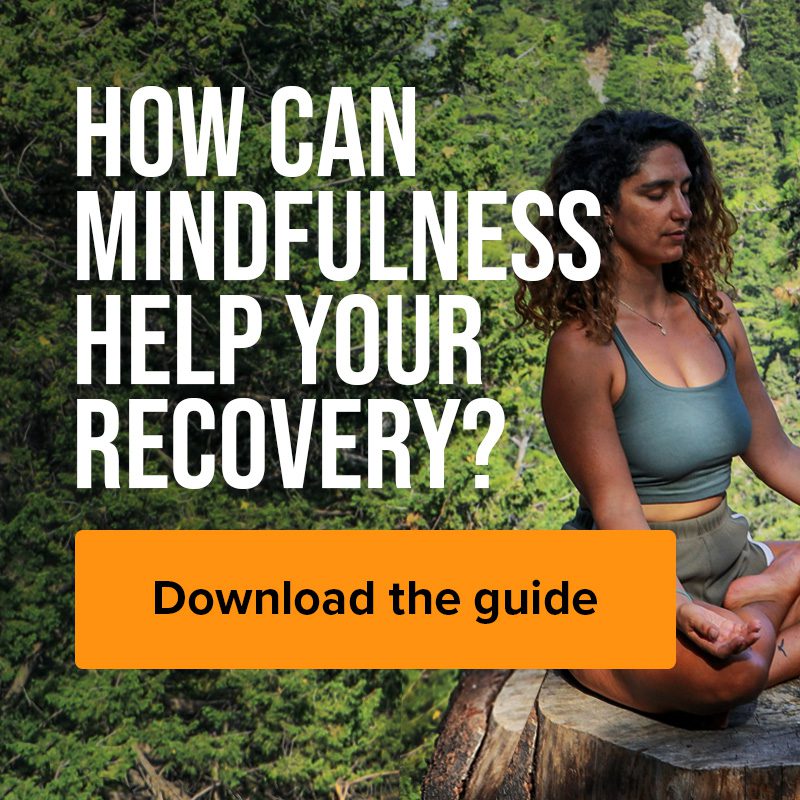Opinion by EHN Staff
Written by Lisa Nixon, an employee at EHN Edgewood Nanaimo.
Recovery is about more than abstaining from drugs, alcohol, or other mood-altering substances. Recovery is about rebuilding relationships and discovering the opportunity that lies within yourself. In recovery, we can move towards a fulfilling life of hope and potential.
People recover in different ways and the process depends on the individual. Once a process has been chosen, it is crucial to remain focused on the end goal of recovery. Over time, we have found certain practices to be helpful in nearly all recovery efforts.
1. Prioritize Recovery
Living a life in recovery from addiction can often mean learning an entirely new way of living. For an individual who has completed residential, virtual intensive therapy, or partial hospitalization treatment, we recommend that they complete an aftercare plan with their counsellor or alumni coordinator. For individuals completing treatment at EHN facilities, this aftercare plan often includes the following elements:
- Attending weekly peer-to-peer meetings: 12-step programs such as AA or NA, In the Rooms Online, SMART Recovery, Eight Step Recovery, Y12SR, SHE RECOVERS Sharing Circles, or other recovery focused groups
- Avoid triggering people, places, and things
- Reach out to other recovering individuals
- Follow a daily schedule
- Practice regular self-care such as positive affirmations, reading, journaling, exercise, and healthy eating
- Regularly participate in in-person or online group therapy
- Utilize recovery apps such as EHN’s Wagon
- Follow a monitored recovery plan utilizing tools for accountability such as Soberlink
Prioritizing recovery in this way can give an individual the framework needed for sustained recovery. Adopting an open mind can help someone adjust to a new daily routine that can lead to lasting change.
2. Cultivate Gratitude
“Energy flows where attention goes. What we choose to go looking for in life—the good or the bad—can have a dramatic impact on not only our view of the world, but on our sense of well-being as a result of that view.”—Zero Dean
Having an attitude of gratitude and focusing on the positive can help individuals in early recovery face challenges and see things from a new perspective. As Rick Hanson describes in his book Buddha’s Brain: The Practical Neuroscience of Happiness, Love, and Wisdom, humans are hard-wired to be more aware of the bad things that happen than the good. As he puts it, the brain is like “Velcro for negative experiences and Teflon for the positive ones.” This negativity bias is helpful when facing a potential threat as it is designed to help us survive in the face of immediate danger; however, this bias does very little to help us move towards living a peaceful life. Thankfully, developing a regular practice of gratitude and reinforcing the positive can help. Some ways to cultivate gratitude in recovery include:
- Reading a recovery-focused daily meditation book such as The Promise of a New Day
- Keeping a gratitude journal
- Calling a friend or recovery ally to share successes
- Spending a few minutes each evening recalling three things you are grateful for
- Complete a random act of kindness, volunteer in the community, or be of service to others as an EHN alumni member or within a recovery community
Taking time to notice what there is to be grateful for on a regular basis can help minimize the self-defeating thoughts that can often lead to overwhelm, anxiety, or triggering thoughts.
3. Learn From Experience
One of the many gifts of recovery is the opportunity to learn and grow from past experiences. If we didn’t make mistakes, we wouldn’t be able to propel forward in life. Shame, which feeds on the belief that someone is a bad person incapable of change, is a feeling that often fuels the cycle of substance use. According to author, researcher and speaker Brené Brown, when we can learn to forgive ourselves for past mistakes, we can release shame and attend to underlying feelings so that we can choose differently in the future. Setting out to learn from experience can ease suffering from past actions and give hope to future potential.
4. Practice Mindfulness and Embodiment
Recovery is also about becoming emotionally healthy, self-aware, and mindful. To be self-aware means to acknowledge and understand your internal feelings and sensations. Acquiring different mindfulness techniques can be helpful in the recovery process. Some ways to begin a mindfulness and embodiment practice include:
- Connect with nature by stopping to notice sights, sounds, sensations, smells, and tastes in the environment around you
- Relax and meditate. Apps like Insight Timer can be a helpful tool to get started
- Listen to music that brings forth positive feelings
- Connect with your creative side through painting, drawing, or writing poetry
Edgewood’s Expressive Arts Therapist Chrissandra Unger utilizes arts, such as music, painting, drawing, and movement, to support patients in improving the connection with their own bodies and surroundings. Patients completing addiction treatment often continue these practices as a regular self-care activity. Chrissandra believes that “people are born with different kinds of intelligences. Everyone has a different way of communicating. The expressive arts offer other tools and languages for recovering individuals to express themselves.”
From medically supervised withdrawal support to individualized outpatient and aftercare, we can help you where you are. Click here to speak to one of our admissions counsellors about how we can help you get the recovery process started.
FURTHER READING
https://www.rickhanson.net/books/buddhas-brain/ (Author of Buddha’s Brain: The Practical Neuroscience of Happiness, Love, and Wisdom, Rick Hanson)
https://brenebrown.com (Resources on shame, Brené Brown)




